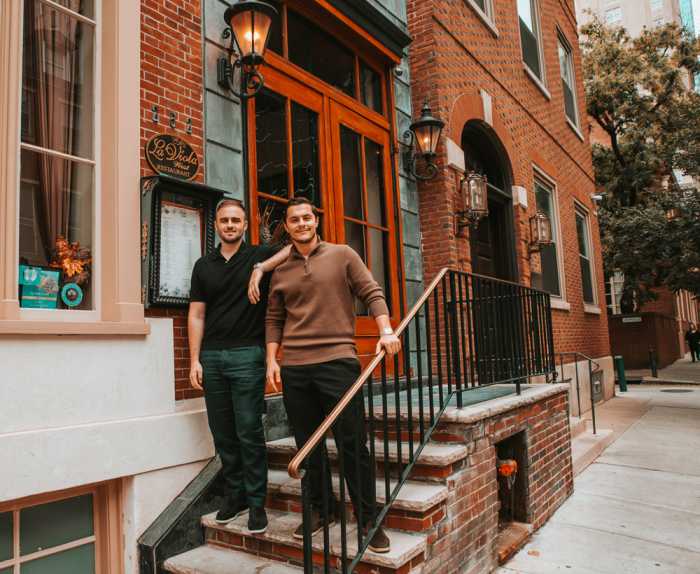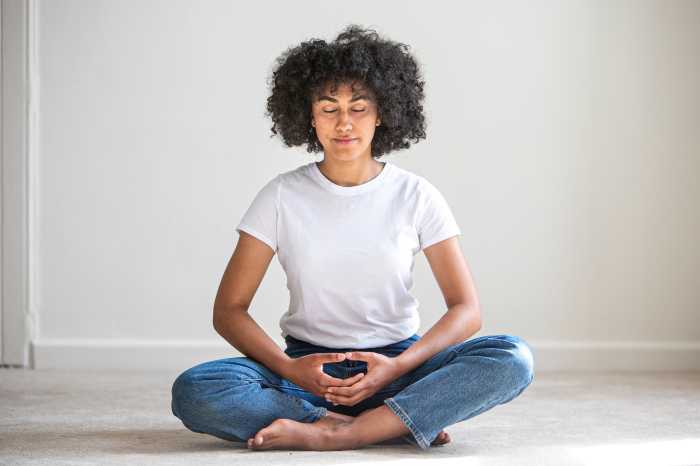By Richard W. Cohen, M.D. and Nancy S. Cohen, M.B.A. in Health Care Administration
Although the holidays of November and December can be lovely and fulfilling for many people, they can also produce stress, anxiety, loneliness or depression for others.
This year, the COVID-19 pandemic is further contributing to the problem as many people have experienced job or financial loss, loss of a loved one, or stress and are unable to be with family and friends due to public health restrictions. Social isolation, a predictor of depression, is exacerbated by the pandemic’s social distancing and quarantining; making people isolated and feeling very alone, helpless and hopeless. Due to the health and safety restrictions, most of us can not see friends or family outside of our household. If someone has already been feeling helpless or hopeless, isolation will most likely make them feel worse this holiday season.
More commonly, the increased demands of the holiday season—buying gifts, producing fantastic meals, entertaining and fulfilling social obligations—produce extreme stress and if the demands are not met, people feel like failures and can become depressed.
WAYS TO COPE WITH HOLIDAY DEMANDS DURING A PANDEMIC:
Modify and scale down your holiday plans
Only prepare and serve dinner to your current household—don’t let anyone from other households and especially other areas of the country come into your home. Keep your home clean and sanitized for your family. As an alternative, connect with extended family virtually. For your own holiday dinner, serve simple, emotionally satisfying comfort food instead of slaving hours over a multi-course fancy dinner. You will avoid stress and save time, money, and calories.
Focus on what matters: agree with family to spend less money on presents, and buy gifts online, not in brick and mortar stores. Instead of exchanging many presents, give money to your favorite charity, drop off food and clothes to a shelter and toys to the local fire station’s toy drive, foster or adopt a homeless dog or cat (petcofoundation.com or petfinder.com).
Find new, safe and inexpensive ways to celebrate the holidays such as window shopping, walking outside and enjoying nature, driving through brightly decorated neighborhoods at night, watching Christmas movies with your family, reading, starting new holiday traditions, or writing and sending holiday greetings to far away family and to military personnel (supportourtroops.com). A selfless act for others is connected to positive physical and mental effects. Giving back and doing constructive deeds for others in need will make you feel happy and increase your self esteem, but can also decrease your blood pressure and lower your level of stress.
Be kind to yourself and take care of your own mental and physical health
Learn the facts about COVID-19, because anxiety thrives on uncertainty and lack of information and control. Knowing facts and implementing safe practices will give you a sense of control and confidence and let you better handle difficult situations and will reduce your overall anxiety.
If you feel sick, call your own physician. Only go into his office or a hospital if he instructs you to—otherwise stay home. Get your seasonal flu shot and any other preventive vaccine that your doctor orders for you. Stay current with your dental and medical appointments to maintain good overall health.
If you leave your home, wear a mask that covers your nose and mouth. Wash or sanitize your hands after you touch anything and do not touch your face. Social distance and avoid anyone who is not wearing masks and avoid use of cash in any monetary transactions.
Follow a routine schedule of adequate sleeping, healthy eating, and exercising about 30 minutes a day. These habits will help boost your immune system and exercise produces natural endorphins which fight depression. Develop restorative practices for yourself. Meditate, practice yoga, take salt baths, walk in nature. Make your own mental and physical health a priority. Avoid technology and television overload, read books you enjoy, start a new hobby such as painting or knitting, keep a journal about your feelings or activities; these activities will help manage stress.
If you want to talk to others who are going through similar experiences, look for help or support groups online (inspire.com or supportgroupscentral.com). If you want to talk one-on-one—preferably through telemedicine during the pandemic—contact a therapist through your health insurance carrier or check: psychologytoday.com/us/therapists.com or goodtherapy.org/therapists/pa/philadelphia.
Have realistic, attainable and relevant expectations for the holidays
Do not set yourself up for failure with unrealistic or unattainable expectations and goals, because you will end up feeling inadequate, overwhelmed, unworthy, anxious or depressed when you don’t attain them. Neighbors or family members might pressure you to participate in activities that make you uncomfortable. They may want to get together for coffee or a drink, go shopping, or stop over for just a minute. Remain cautious and sensible. Don’t hesitate to just say ‘no’ if neighbors or family members ask you to do anything that makes you uncomfortable or you do not think is safe.
Know when to get help
Isolation fosters depression, suicide, alcohol and drug abuse, and abuse of others. If your feelings are extreme you should seek help. There is a difference between the holiday blues and major depression. Many people will experience holiday blues this year since they can not celebrate as normal with extended family but most will be able to cope with the changes and disappointments. If your feelings are extreme, you should seek professional help. Symptoms of major depression include persistent symptoms of sadness, insomnia, hypersomnia, poor concentration, fatigue or loss of energy, appetite or weight disturbance, psychomotor agitation or slow down, feelings of worthlessness or excessive guilt, decrease in concentration, loss of interest or pleasure in activities, or thoughts of suicide.
Richard W. Cohen, M.D. is married with two grown children; Graduated from the University of Pennsylvania in 1969, earned a Masters degree from Villanova in 1972 and Temple Medical School in 1977. Chief Resident at Albert Einstein Medical Center, Board Certified in Psychiatry and Neurology, former Assistant Professor of Psychiatry, Family Medicine, and Otolaryngology at Thomas Jefferson University. Private practitioner of Psychiatry for over 35 years.
Listed below is important, potentially life saving services:
National Suicide Prevention Hotline: suicidepreventionlifeline.org, 1-800-273-8255 (TALK)
Veteran Hotline: veteranscrisisline.net, 1-800-273-8255 press 1 or text 838255
Domestic Violence Hotline: thehotline.org, 1-800-799-7233 (SAFE)
Substance Abuse and Mental Health Services Administration: samhsa.gov, 1-800-662-4357 (HELP)



























